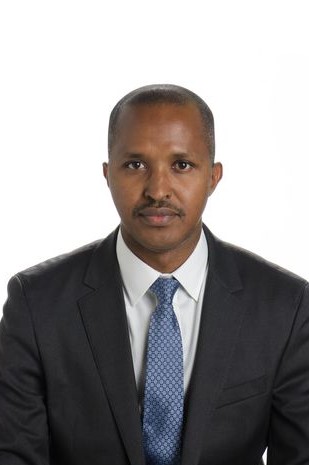
- The IMF Executive Board decision allows for an immediate disbursement of about US$ 14.4 million to The Gambia to help meet the country’s financing needs and support the post-pandemic recovery.
- The second wave of the COVID-19 pandemic has dampened economic activity, with attendant socio-economic costs. However, with the global vaccine rollout, development partners’ support of The Gambia’s vaccination campaign, and the resilience of some economic sectors, growth is expected to rebound to 4.9 percent in 2021.
- The authorities deserve praise for the strong performance under the IMF-supported program and their ability to maintain macroeconomic stability, despite the challenges posed by the pandemic.
Washington, DC: The Executive Board of the International Monetary Fund (IMF) today completed the second review under the Extended Credit Facility (ECF) arrangement with The Gambia. The completion of the review enables an immediate disbursement of SDR 10 million, about US$ 14.4 million, to help meet the country’s balance-of-payments and fiscal financing needs as well as support the post-pandemic recovery. This brings total disbursements under the ECF arrangement to SDR 35 million, about US$ 50.5 million. The Executive Board’s decision was taken on a lapse-of-time basis. [1]
The ECF arrangement with The Gambia was approved by the IMF’s Executive Board on March 23, 2020 , with an initial total access of SDR 35 million that was augmented at the completion of the first ECF review on January 15, 2021 to SDR 55 million (88.4 percent of quota). The Gambia has also benefited from an IMF Rapid Credit Facility disbursement of SDR 15.55 million and is receiving debt service relief from the IMF under the Catastrophe Containment and Relief Trust, expected to total SDR 7.9 million, of which SDR 6.1 million has already been approved.
The second wave of the COVID-19 pandemic has dampened economic activity, with attendant socio-economic costs. For 2020, economic growth is estimated at zero percent; the tourism sector was hit hard while the agricultural and the construction sectors have shown resilience. For 2021, economic growth is expected to rebound to 4.9 percent, supported by the global and domestic vaccine rollout as well as the continued resilience of some economic sectors.
The authorities deserve praise for the strong program performance and their ability to maintain macroeconomic stability, despite the significant challenges posed by the pandemic. At the onset of the COVID-19 pandemic, the authorities relaxed the fiscal and monetary policy stances to help meet pandemic-related humanitarian needs and support economic activity, while keeping within program limits. Inflation dropped from 7.7 percent (year-on-year) at end-2019 to 5.7 percent (year-on-year) at end-2020 before picking up to 7.4 percent at end-March 2021 due to seasonal factors. Large official and private forex inflows helped boost reserves to 4.7 months of imports at end-2020. Public debt declined.
Going forward, ensuring continuation of strong policies is paramount to maintain good program performance. Adequate fiscal policy prioritization will be key to addressing the pandemic and supporting economic recovery, while reducing debt vulnerabilities. Tax exemptions will be further streamlined, and savings will be made on subsidies to State-Owned-Enterprises (SOEs). Pursuing a prudent fiscal policy will ensure reducing the high risk of debt distress in the medium term. Monetary policy remains appropriately accommodative, while liquidity and inflation developments need to be monitored and pockets of financial vulnerabilities tackled. Given the slow credit growth in a context of ample liquidity, structural obstacles to credit should be addressed.
It is critical to persevere in the ambitious structural reform agenda, especially in the context of upcoming presidential and parliamentary elections, to fully reap the benefits from the country’s remarkable turn-around in recent years. Swift implementation of the business environment strategy will support strong and inclusive growth. The Public Procurement Act should be enacted to improve the value-for-money of spending. The SOE Bill, which is on hold because of the stalled constitutional reform, should be finalized to improve SOEs’ performance and reduce their reliance on the state budget.





